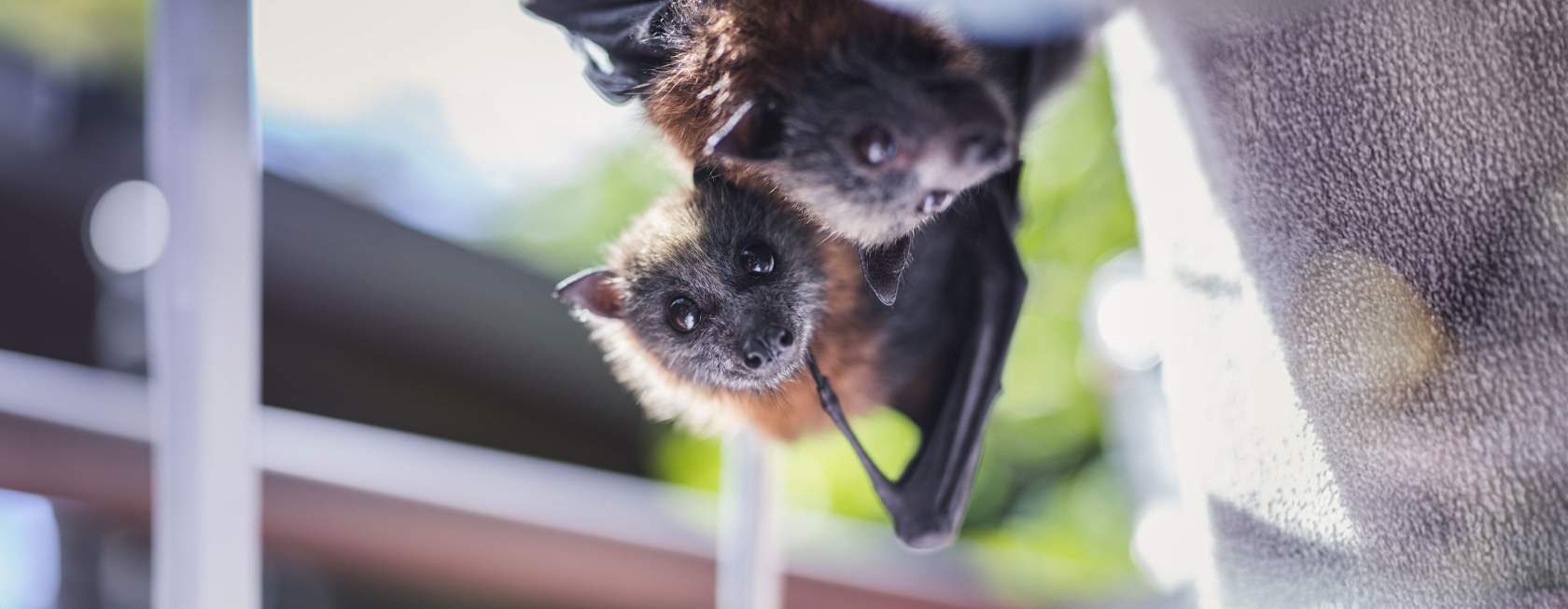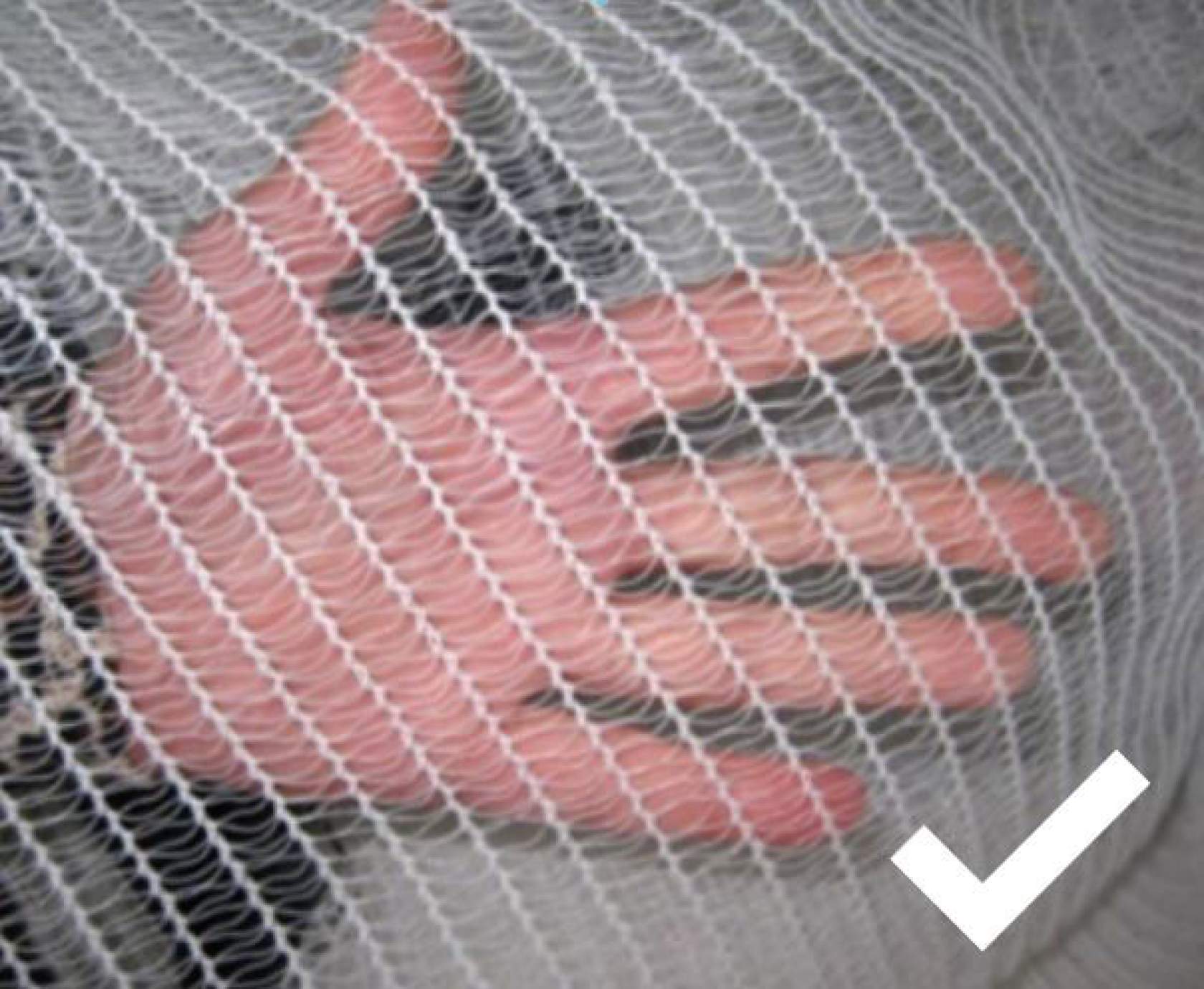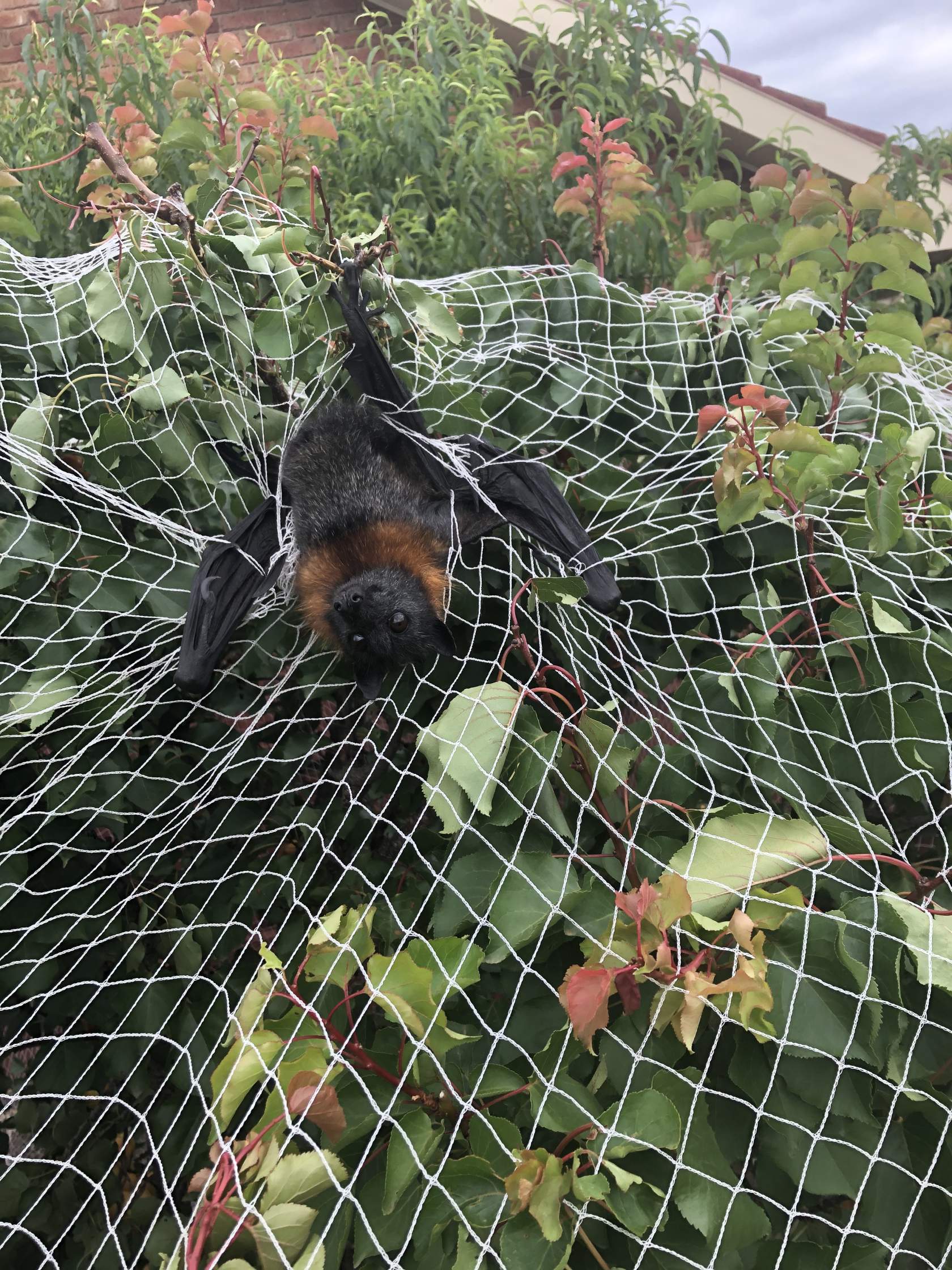
Many native animals feed on flowering and fruiting trees in our backyards, leading some people to protect their fruit by covering their trees with loose netting. They often don’t realise that this type of netting can be deadly to native wildlife including flying-foxes (also known as fruit-bats), birds, possums and small reptiles.
Choosing the right netting
If you can poke your finger through the holes in the net, then it is a hazard to many species of wildlife.
You can protect individual fruit as it grows with ‘fruit protection bags’ and leave some fruit at the top of the tree for the critters.
A shade cloth, or netting brands such as Fruitsaver, Hailguard and Vegenet work well and should be pulled and secured tightly around the tree. Avoid letting loose or open gathers of material hang down as wildlife can still enter this way and become entangled inside the net.
As a best practice guide, the mesh diameter should be less than 2mm so that you can’t poke your finger through.
Possums, reptiles and grey-headed flying foxes (fruit bats) are especially susceptible to netting entanglement - please refer to our species fact sheets for more information.
If you come across a flying fox that is entangled in fruit netting, please do not attempt to handle the bat or cut it free. Please call our Emergency Response Service immediately on (03) 8400 7300.


Letters for change
As of September 2021, it became illegal to sell or use netting on domestic fruit trees unless the netting holes were no bigger than 5mm x 5mm when fully stretched.
Illegal netting with holes larger than 5mm x 5mm can cause wildlife to become entangled and trapped in it. Most birds and animals (including the threatened grey-headed flying fox) trapped in these nets will need to be euthanised as their injuries can be very severe.
Download the below letters if you see someone in your community using illegal residential netting or if you see a retail store selling illegal netting.
We hope that by increasing your understanding and awareness of our beautiful wildlife, you feel empowered to deal with wildlife situations confidently in an informed, safe and appropriate manner. For support at any time, please call our emergency response service for advice on 03 8400 7300 or report the details.
